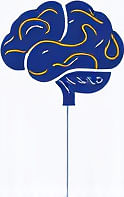Self-Care Routines for Remote Workers with ADHD
 by Max Miller
by Max Miller
Explore effective self-care strategies tailored for adults with ADHD in remote settings. Learn practical tips to boost productivity, manage daily challenges, and achieve better work-life balance through simple routines and adjustments.

Remote work offers unique opportunities for adults with ADHD, allowing greater flexibility in schedules and environments. This can help reduce some daily pressures, but it also brings its own set of challenges like distractions and blurred boundaries between work and home.
Establishing a Morning Routine
Starting the day with intention can make a big difference. A consistent morning routine sets the tone for productivity and mental well-being. For instance, begin by waking up at the same time each day to build a sense of rhythm. This helps signal to your body that it's time to transition into work mode.
Incorporate activities that promote calm, such as a short walk or stretching. These practices can aid in focusing energy. Remember, it's okay to experiment until you find what suits your needs. Many find that including a healthy breakfast supports sustained attention throughout the day.
Creating an Optimal Work Environment
Your workspace plays a key role in managing ADHD symptoms. Arrange your area to minimize distractions, like positioning your desk near a window for natural light. This can enhance concentration without overwhelming the senses.
Use tools such as noise-cancelling headphones to maintain focus during tasks. Organizing your space with clear storage can reduce visual clutter, making it easier to locate items quickly. Self-care in this context means creating a haven that supports your work style.
Implementing Break Strategies
Taking regular breaks is essential for recharging. The Pomodoro technique, for example, involves working for a set period followed by a short pause. This method can help prevent burnout and improve task completion.
During breaks, step away from screens to engage in activities that refresh the mind, like deep breathing or a quick outdoor stroll. These moments allow for mental reset, which is particularly beneficial for those with ADHD who may experience fluctuating energy levels.
Managing Time and Tasks
Effective time management is a common area of difficulty, but simple strategies can offer support. Break larger projects into smaller, manageable steps to avoid feeling overwhelmed. Prioritize tasks using a to-do list, focusing on what needs immediate attention.
Apps designed for task tracking can be helpful, as they provide reminders and visual cues. ADHD routines often benefit from flexibility, so adjust your schedule as needed to accommodate varying focus levels.
Incorporating Physical Activity
Movement is a vital part of self-care for many with ADHD. Include exercise in your daily routine to help regulate mood and improve cognitive function. Whether it's a yoga session or a bike ride, physical activity can release endorphins and reduce stress.
Aim for at least 30 minutes of moderate activity most days. This doesn't have to be intense; even light movement can make a positive impact on your overall well-being.
Nurturing Social Connections
Working remotely can lead to isolation, which might exacerbate feelings of disconnection. Make time for virtual interactions with colleagues or friends to foster a sense of community. Scheduled check-ins can provide emotional support and reduce loneliness.
Building relationships through online groups focused on neurodiversity can also be affirming. Sharing experiences with others who relate can offer valuable insights and encouragement.
Evening Wind-Down Practices
Ending the day on a positive note is just as important as starting it. Develop an evening routine that includes winding down activities, such as reading or journaling. This helps signal the end of work and promotes better sleep.
Limit screen time before bed to improve rest quality, as blue light can interfere with natural sleep patterns. Consistent sleep schedules contribute to better daily functioning for individuals with ADHD.
Building Resilience Through Reflection
Regular self-reflection can enhance your self-care approach. At the end of each week, review what worked well and what didn't. This practice encourages growth and adaptation, allowing you to refine your routines over time.
Be kind to yourself during this process; progress comes from trial and error. Remote work for those with ADHD is about finding sustainable ways to thrive.
In summary, self-care routines are personal and evolve with your needs. By integrating these strategies, you can foster greater balance and productivity in your remote setup. Remember, seeking professional guidance when needed is a sign of strength, ensuring you have the support to maintain your well-being.
